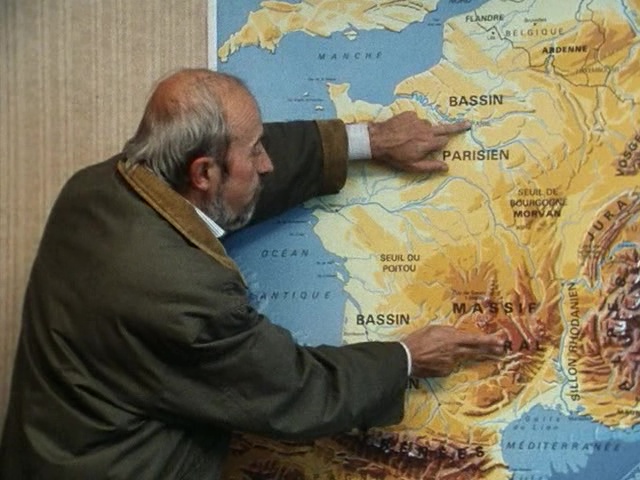On the Function of the Term ‘Paranational’
The prefix ‘para-’ comes from the Ancient Greek παρά (pará, “beside; next to, near, from; against, contrary to”). Its meaning in English encompasses, among others: parallel (beside, alongside), adjacent to, opposite of, across, beyond, unrecognized, unsanctioned, avoidant. In these prepositional and exclusionary functions, ‘para-’ indicates an aberrant relation within a wider normative context. Added to the adjective ‘national,’ ‘para-’ can help to describe and interpret practices, modes of existence, or attitudes which are beside, transversal or in opposition to constituent norms of a nation or a nation-state. These aberrations can be actively chosen or ascribed by external powers. Hence, ‘paranational’ can be used to refer to what is unrecognized or considered digressive within normative criteria and can similarly refer to an active dissensus with these criteria or a non-recognition of nation and nation-state as a concept and a functional reality.
The differentiation between nation and state as concepts and as globally pervasive political, bureaucratic, economic, and sociocultural realities – which affect even those who do not consider themselves nationals, who do not have or would prefer to renounce nationality if they could – appears to be key when trying to ascertain the potential of the prefix ‘para-’ in an inquiry of ‘the national.’ In its more active aspects, it could be conceived of as a critical intervention into the imaginary foundations of the nation as community (Anderson 2006), the discrepancies between nation and state, their mythical histories and projected futures (Balibar 1996), and the structural and representational forms they afford, for instance in the cinema (Willemen 2006).
The conceptual and mundane dimensions of the nation, whether it assumes the function of a state or not, are part of a reciprocal dynamic. The wide scope of meanings of ‘para-’ listed above indicates potential crossovers between these dimensions: For example, if opposition to conceptual notions of the nation leads to alternative practices, these may run into conflict with the institutions of a specific nation-state. Similarly, practices referring to the nation as a conceptual idea(l) in a quest to constitute it as a reality may lead to conflict with already existing national entities, as in the case of movements of liberation, independence, and decolonization. One example would be the necessity for militant film practices to establish alternative infrastructures of production and dissemination.
These crossovers could help to distinguish what can be considered ‘paranational’ from that which has been defined as inter-, trans-, or supranational. These latter terms are used to place nations and nation-states in a spatial (or other) relation to each other in order to describe exchanges and convergences of goods, people, ideas, etc. They presuppose a world divided into nation-states as a functional reality and validate the concept of the nation. Yet, ‘paranational’ can also involve a temporal relation, of the before (‘pre-,’ ‘proto-’) and after (‘post-’) of a nation or nation-state. Part of this temporal aspect are utopian thought, aspirations towards eventual self-determination as a national entity, and imaginations of the creation, change, but also the demise of a nation-state.
Describing and interpreting non-accordant and divergent practices as ‘paranational’ refracts notions of nation as concept and reality. This prismatic effect entails a displacement of perspective, as it enables an inquiry of nation and nation-state without presupposing them as given or inevitable. It can thus also facilitate a much-needed erosion of the ontological assertiveness that the nation-state has gained, for example, in the writing of film histories (Christie 2013). Therefore, the term ‘paranational’ can be understood as a heuristic device to discern and create visibility for various film practices which have been eclipsed within or by national criteria. Accordingly, ‘paranational cinema’ appears to be paradoxical only insofar as ‘the cinema’ is understood to be largely homogeneous and coherent. The term is thus best used in its adjectival form to qualify particular ‘paranational’ instances, rather than its substantival form, which could lead to the creation of categorial entities such as ‘the paranational’ or ‘paranationality’.
The term ‘paranational’ does not promise a radical turnaround by recentering a discipline on a hitherto less common category of inquiry and insight (such as the various “turns” within the humanities). Its potential to formulate an academic paradigm shift is positively minimal as its area of inquiry is at the micro- rather than the macro-level. The function of the term ‘paranational’ could, however, be understood in analogy the original Greek composition of ‘paradigma’: a “pattern, example, sample,” derived from παρά (pará) “beside, beyond” and δείκνυμι (deiknumi) “to show, to point out”. To point beside implies keeping the central, conventional form in the corner of the eye. Focusing on ‘paranational’ instances means that the nation is always present; its current existence cannot easily be ignored, negated or eradicated, but that is not a reason to affirm it.
